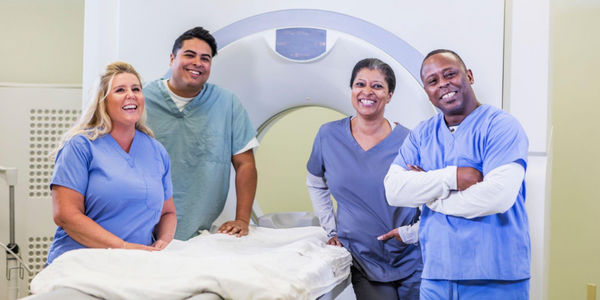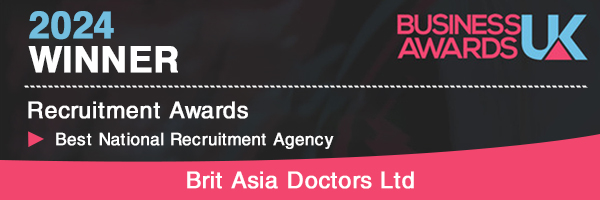Being a radiographer means, you’ll work with radiations to handle X-rays and imaging technologies to diagnose patients’ failing health or injuries. It is an essential branch of healthcare. There are two kinds of Radiography. Diagnostic Radiography which is used for diagnosis and Therapeutic Radiography which is employed for treatments. If you are aiming at becoming a radiographer in the UK you have to meet certain requirements. Additionally, you may also be looking for some essential details regarding the registration process, career progression, salary etc. By the end of this page, you will get all the information needed for an unclouded understanding of how to become a radiographer in the UK. So keep scrolling!


What are the responsibilities of radiographers?
As a radiographer, you will be required to fulfil the following responsibilities.
- Assess patients and their clinical requirements to work out which radiographic technique to be used.
- Assist doctors or surgeons in complex radiographic examinations.
- Ensure safety and look for any malfunctioning of apparatus.
- Supervise the assistants in radiography.
- Manage X-rays and conclude results.
- Help in more complex radiological examinations, working with doctors and surgeons.
- Keeping yourself updated with safety guidelines from time to time.
- Exceptionally good communication skills so as to explain the steps of the procedure to patients in an effective way.
- Observant and sharply attentive mind.
- Ability to handle tough situations.
- Calm behaviour in rough conditions.
- Good decision-making ability.
- A noteworthy emotional intelligence to cope up with stressful conditions if any.
- Inclusive technical knowledge and physiological knowledge.
Physical fitness is a must for radiographers. Also lifting apparatus as well as the person under examination is a bit tiring.
What qualifications must I have to be a radiographer?A degree or a postgraduate qualification approved by the Health and Care Professions Council (HCPC) is a prerequisite for becoming a radiographer. You can register by applying for HCPC training of either an undergraduate or postgraduate standard. There are some standards of proficiency that every radiographer should meet in order to become registered.
Moreover, if you hold any degree related to science or health-care, apply for a quick postgraduate training program.
Courses having UK-approval will open the doors for becoming eligible for HCPC registration.
For an assistant practitioner, a DipHE in clinical imaging or a foundation degree in health care may be beneficial.
How to register with the HCPC?There are two routes to apply for registering with HCPC based on your nationality.
UK application process
If you have been trained in the UK follow the below steps.
- Submit forms and fee
- Processing
- Check the register
HCPC aims at completing the process within 10 days. The details of successful applicants will be automatically added on the register. You can check the register online to confirm the process.
International application process
If you have been trained outside the UK follow the below steps.
- Submit forms and fee
- Receive confirmation and reference number
- Processing and assessment
- Decision letter
Step 1: Application received by HCPC
There can be two cases when an application is received by the HCPC. Either it is accepted for processing or rejected because of missing information.
Case I- Application is accepted
Fortunately, if your application is accepted you would be required to pay £495 as the scrutiny payment. Thereafter, HCPC will provide you with a confirmation receipt as well as your reference number. The reference number holds vital importance as you would be asked to provide it each time you contact HCPC to discuss your application at any stage.
Case II- Application is rejected
If your application is rejected, HCPC will return it on the address mentioned in the form and you would be required to re-submit the application.
Step 2: Initial processing
Timeline: Within four weeks from receipt.
During this period HCPC will contact your education provider, any relevant regulatory or professional bodies and any professional referees. This will be done to verify the information that you have provided. HCPC may also ask an outside agency to conduct these checks on its behalf.
Step 3: Assessment
Timeline: Within 60 days from receipt.
This stage of assessment will assess your regulated education and training and other relevant education, training or experience. First, your training or education will be compared with the standards of proficiency of the HCPC. If there are any shortfalls it will look if this has been compensated with any other relevant education, training or experience.
Note: The decision of HCPC is based only on the information provided by you. It does not contact any other referees, training institutions, or employers to obtain further information about your training or work experience. So make sure that you provide everything to the best of your knowledge.
Background and verification checkInternational applicants will be required to sign a declaration regarding background checks.
The declaration will give permission to the HCPC to:
- Verify your identity documents
- Confirm your qualifications
- Confirm your good standing and character
To meet the standards of registration you should be sure of your identity, qualification and a good character.
All the documents which are required will be included in your application. HCPC might ask an outside agency to conduct the checks to ensure that the documents provided are genuine.
English language proficiencyInternational applicants are required to confirm their proficiency with the English language by scoring a minimum level score in either of these exams.
IELTS
IELTS, the International English Language Testing System, is designed to assess the language ability of candidates. IELTS test can be taken at one of the centres across the world. Below figure suggests the exam pattern.
TOEFL
TOEFL or Test of English as a Foreign Language is an English Proficiency test, conducted to evaluate the English speaking and understanding ability of a candidate. TOEFL has essentially two versions: TOEFL IBT (Internet-based test) and TOEFL PBT (paper-based test). You need to appear for TOEFL IBT. HCPC doesn’t accept any TOEFL test score undertaken in the UK. Below figure depicts the pattern of the exam.
Here is the minimum level of scores that you need to achieve.
All professions except speech and language therapists
| Test | Minimum score |
| IELTS | 7.0 with no element below 6.5 |
| TOEFL (IBT) | A minimum score of 100/120 |
Speech and language therapists
| Test | Minimum score |
| IELTS | 8.0 with no element below 7.5 |
| TOEFL (IBT) | A minimum score of 118/120 |
Note: HCPC accepts these certificates of English language proficiency, provided they are no more than two years old when your application is received.
Universities for training programs insist to have a prior visit to any of the imaging or radiography department. Moreover, a role in public health-care also holds its perks.
How much will I be Paid?For a fresh radiographer, starting NHS salary is £23,023, which may range up to £29,608. Also, Locum/Ad Hoc work is very easily available to supplement your pay. A well-experienced radiographer can earn up to £36,644. Exceptionally excelling radiographers can earn up to £43,041.
For a non-NHS, the payment is based as per the competitive environment and is also negotiated as per individuals. On average, UK radiographers are paid £39,000.
How many hours will I have to work?Approximately a radiographer works for around 37 hours per week. You might work in shifts. The radiographer may also be required to work on public holidays. You can opt for part-time working along with your department’s work.
Where can I find job vacancies?- The UK has job vacancies in many hospitals as well as private clinics for radiographers.
- You can also work in specific health departments like the operation theatre or emergency ward.
- There are also probabilities of agency works.
- Self-employment or freelancing can be an option but its scarcely common.
- 90% of UK radiographer get employment by the NHS.
- Application Specialist is also a designation where you'll have to supervise and assist the staff for new apparatus launched in hospitals.
Career prospects for diagnostic radiographers are generally good.
- Being a radiographer you can specialize in a particular group of patients.
- You can specialize in a specific field of radiography, such as:
- Magnetic Resonance Imaging
- CT scans
- Sonography
- Mammography etc.
- You can become an advanced radiographer practitioner. On being an advanced practitioner you’ll have to take higher responsibility with monitoring of patients. You’ll also support the development of strategies and research.
- NHS Management post can also be a beneficial choice.
How can Britasiadoctors help you?
“The process of getting a doctors job in the UK is a bit complicated and the very first step that you should take to ensure that the process is hassle-free is choosing a partner that can guide you through each step. The team of Britasiadoctors is beside you from the point you decide to work as a doctor in the UK till you achieve your dream. With our experience and prowess, we will make all the stages including the registration process, exam and interview preparation, visa application and your arrival in the country as easy and as best we can. Our robust support team will guide you through all the steps so that you can complete the process smoothly. Having gone through the process ourselves, we can give you personalised advice and ways to make life easy for you. Our major role will be to organise interviews, connect you with the right employer, help you through the visa process and anything we can do on your way to success. For more information, please visit our service section.
Thanks!




